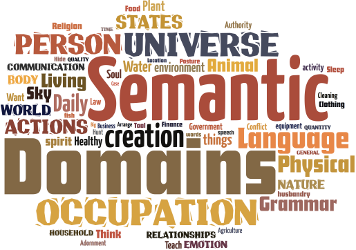9.4.1.4 Relational tenses
Use this section for verbal auxiliaries, affixes, adverbs, and particles that indicate relational tenses. Relational tenses describe situations where the reference time is not the same as the moment of speech. They may be combined with any of the tenses, either in the same morpheme or in combinations of morphemes. The following definitions are taken from Bybee, Joan, Revere Perkins, and William Pagliuca. 1994. The evolution of grammar. Chicago and London: University of Chicago Press.
resulting state (resultative): action in the past produces a state that persists into the present.
be... -en,
anterior continuing: past action continues into the present: 'I have waited over an hour' ( = and I'm still waiting).
have been... -ing,
anterior: the situation occurs prior to reference time, and is relevant to the situation at reference time. This is different from a simple past or perfective, where the situation is reported for its own sake and independent of its relevance to any other situation.
have... -en,
A form that signals a situation that is prior to and relevant to a past reference time will be coded with two meaning labels, past and anterior.
had... -en,
